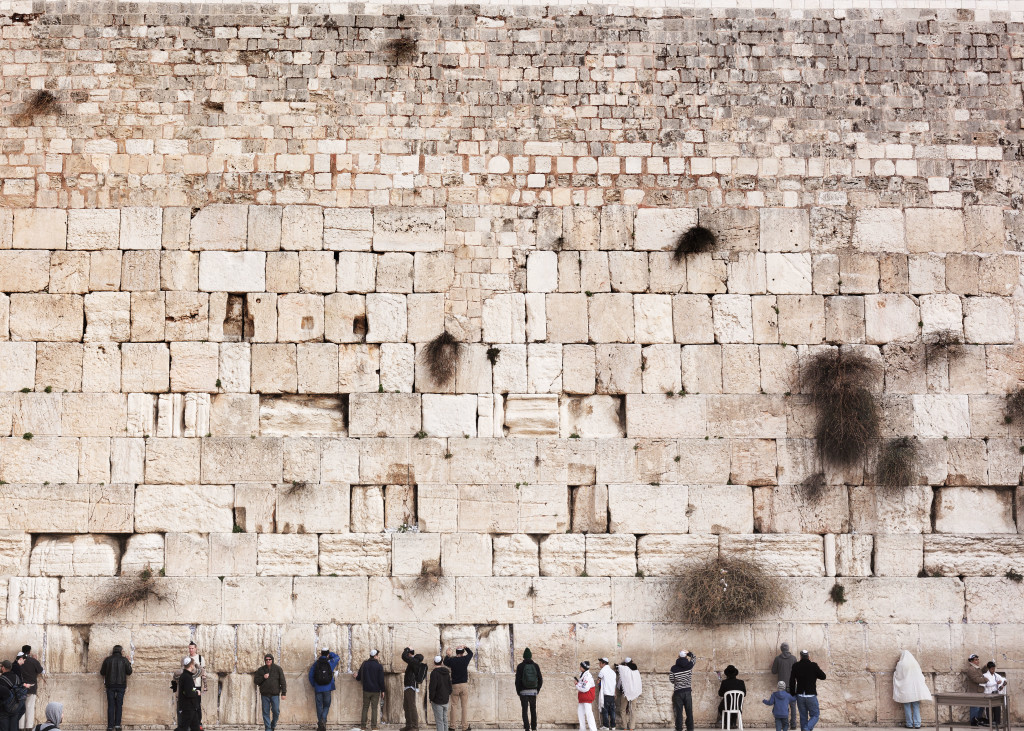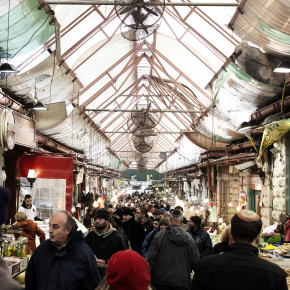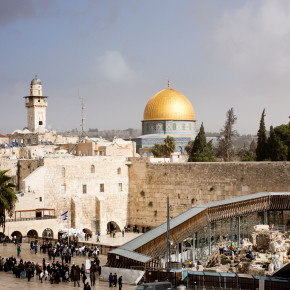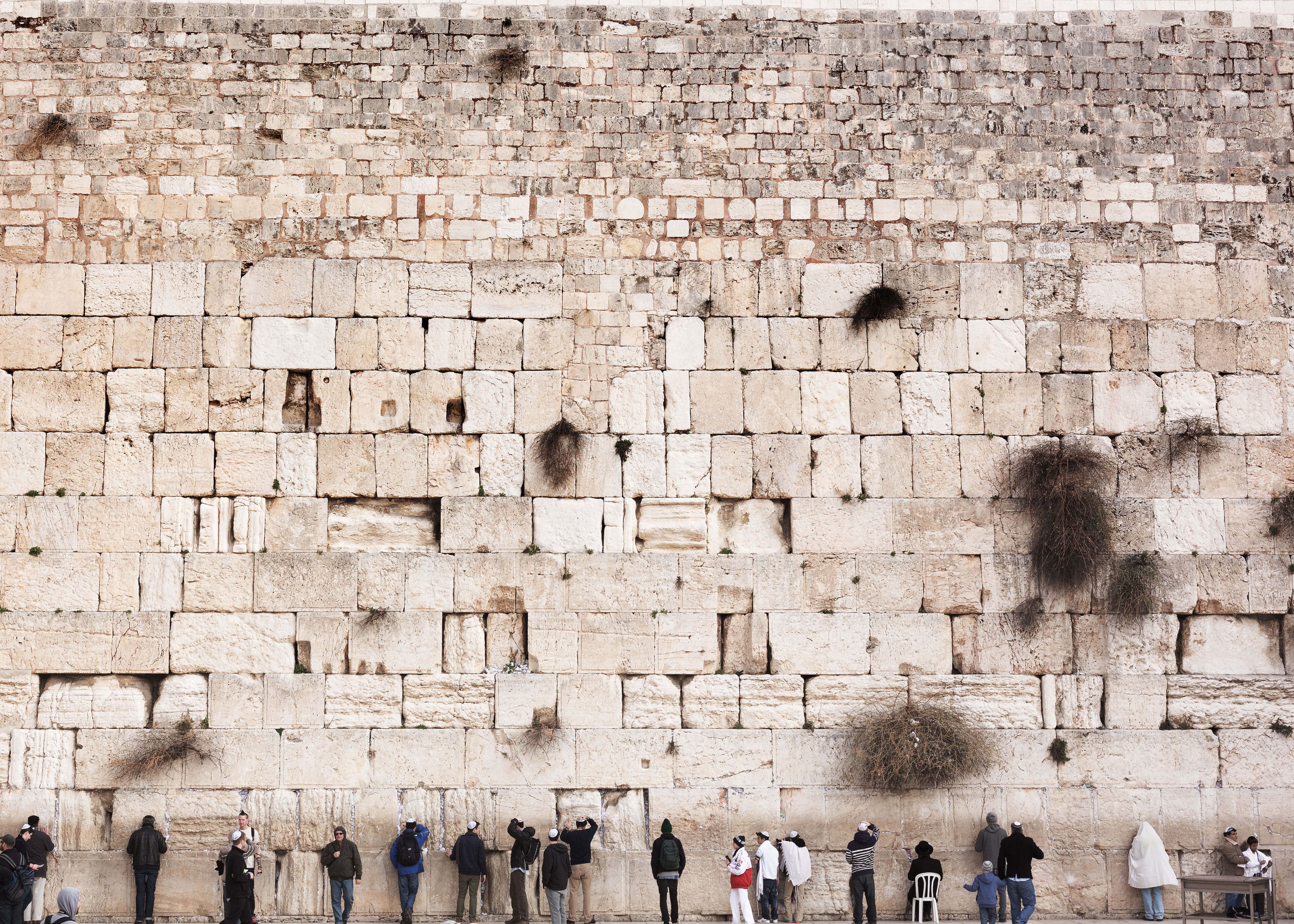
The hot white wind whistled quietly as I walked through the rows of Jerusalem’s labyrinthine cemetery, built on a mountainside.
I would have never found my grandmother’s grave here if it weren’t for Inna, her lifelong friend. They had met in college back in the Soviet Union, where we all had once lived. I had called Inna as soon as I landed in Israel, the last stop on my solo journey around the world.
Inna led me past a wall of tombs until we arrived at one bearing the black granite letters of my grandmother’s name.
The last time I had seen my grandmother was more than two decades earlier, before she bought a one-way ticket to Israel in hopes of curing her Alzheimer’s. It was a tumultuous time. The Soviet Union was collapsing, and many were heading abroad. My grandmother, a literature professor, had started to notice early symptoms of her condition. Rumor had it that in Israel they knew a cure. My grandmother decided to leave everything behind and make the move, joining Inna in Jerusalem.
There was no one else in this section of the cemetery, and in the morning stillness I felt my grandmother beside me. The warmth of her skin. Her round, tanned face. Reddish curls that bounced when she moved. A laugh that rang like wind chimes.
I didn’t want to leave her, but the taxi was waiting.
As our car weaved through the cemetery and back toward the city, Inna said, “I’m really glad you came to visit your grandmother. I see a lot of similarities in you.”
I felt the same way. My grandmother and I had shared a sense of independence that had propelled us to leave one life in search of another. Twenty years after my grandmother made her life-changing decision, I also bought a one-way ticket, leaving behind family, friends, and a marriage that no longer worked.
Now, on the final lap of a journey meant to help me put myself back together, I wished I could ask my grandmother about her life and gain a little wisdom to live my own. But she was gone. I wanted to ask her friend more about her, but there was no time. Inna had to rush home for the Jewish holidays, and I had to meet my brother at the Wailing Wall.
When I entered Jerusalem’s Old City through the ancient Jaffa Gate, the scene was dizzying. A boiling river of tourists flowed down the alleys of the street market. I was running late, so I hurried past the shopkeepers doggedly hawking their wares. Red carpets. Wooden crosses. Miniature chess sets. Green carpets. Gooey baklava. Silver jewelry. Evil-eye charms. More carpets.

“Can I ask you a question, miss? Excuse me, miss! I just wanted to ask you …”
I flew by them, weaving my way through the tourists haggling over souvenirs, ducking under giant trays of fresh sesame-seed bread carried by deft young men.
Then, something stopped me.
I was in front of a shop selling unpolished silver antiques—oil lamps, samovars, menorahs. But what caught my attention wasn’t the merchandise. It was the old shopkeeper.
His eyes matched the deep blue of his simple work shirt. They exuded the calm of someone who belonged under the shade of an oak tree in a peaceful meadow, not in the madness of an urban bazaar.
There was something entrancing about this Middle Eastern Buddha who smiled at me and said, “Come, take five minutes inside.”
“But I’m in a hurry, someone is waiting for me,” I said skittishly, without moving.
“Our whole life passes as we hurry,” he replied. “When we are kids, we hurry to grow up. Then, we grow up and hurry to …”
“Yes, I know,” I interrupted, remembering the hectic life I had left behind. “Everyone always hurries. But actually, I’ve been traveling and haven’t felt hurried this whole year.”
“And? Did you find yourself?” he asked, as if he knew exactly what had sent me away from home and brought me to his doorstep.
“I think so,” I said. “That’s what I’ve been trying to do, anyway.”
He considered me quietly. “You keep a guard, but you shouldn’t. You’re beautiful, intelligent, sensitive, and a little stubborn. Come,” he gestured toward the depths of his silver cave. “I want to talk to you.”
I could have said no and left for the Wailing Wall, where my brother was probably already waiting. Instead, I walked to the back of his store and sat on a soft cushion. He sat in front of me, his small figure framed by rows of ivory bracelets. An antique clock slept above his head.
“Are you in love with yourself?” he asked.
Wait, what?
I considered his strange question. It seemed that I’d been able to leave my marriage precisely because I loved myself enough to save what remained of me. And yet the experience of the divorce had made me feel like a failure.
The most truthful answer I could give was, “Sometimes.”
“Why sometimes?”
I paused again, my eyes focused on the bracelets hanging in front of me. “Can you love yourself even though you feel that no one else loves you?”

To my embarrassment, I felt a tear roll down my cheek as I said the words. I despise self-pity, so I turned away and pretended to look around the store. Trying to find something else to talk about, I made a comment about an old samovar on one of his shelves. But the shopkeeper made no reply. When I finally turned to face him again, he was looking at me with curiosity, not pity.
“To love yourself doesn’t mean to be selfish,” he said. “To love yourself means to be at peace with your body, your soul, with who you are. I see that you’re hiding yourself because you feel ashamed of your tears, but even with tears you are beautiful.”
My tears now started streaming down my face.
“Love is simple,” he said, pressing his hand to his heart. “I know I haven’t known you for very long, but … I love you.”
He said it so naturally. Looking into his serene eyes, I believed him.
Who said that love is the lifelong emotion that wives feel toward their husbands and mothers toward their children? Why can’t love be a sudden burst of sunshine in a dusty shop in Old Jerusalem?
The two of us sat there. I could hear the clamor of the market, just steps away.
Three women walked into the store, and the moment passed. I looked at my watch. I was now an hour late.
Wiping away my tears, I rejoined the crowds in the street, making my way to the Wailing Wall.
Sasha Vasilyuk Sasha Vasilyuk is a writer based in New York City. She was born during a cold Russian winter and grew up in the golden hills of the San Francisco Bay Area. Her essays and articles on art, culture, business, travel, and love have been published in the Los Angeles Times, San Francisco Chronicle, Russian Newsweek, Oakland Tribune, and Flower magazine. She received the 2013 North American Travel Journalists Association silver medal for her Los Angeles Times cover photo "Barra De Valizas." She is currently working on a collection of essays about her year-long solo journey around the world.
- Follow us on Twitter: @inthefray
- Comment on stories or like us on Facebook
- Subscribe to our free email newsletter
- Send us your writing, photography, or artwork
- Republish our Creative Commons-licensed content

